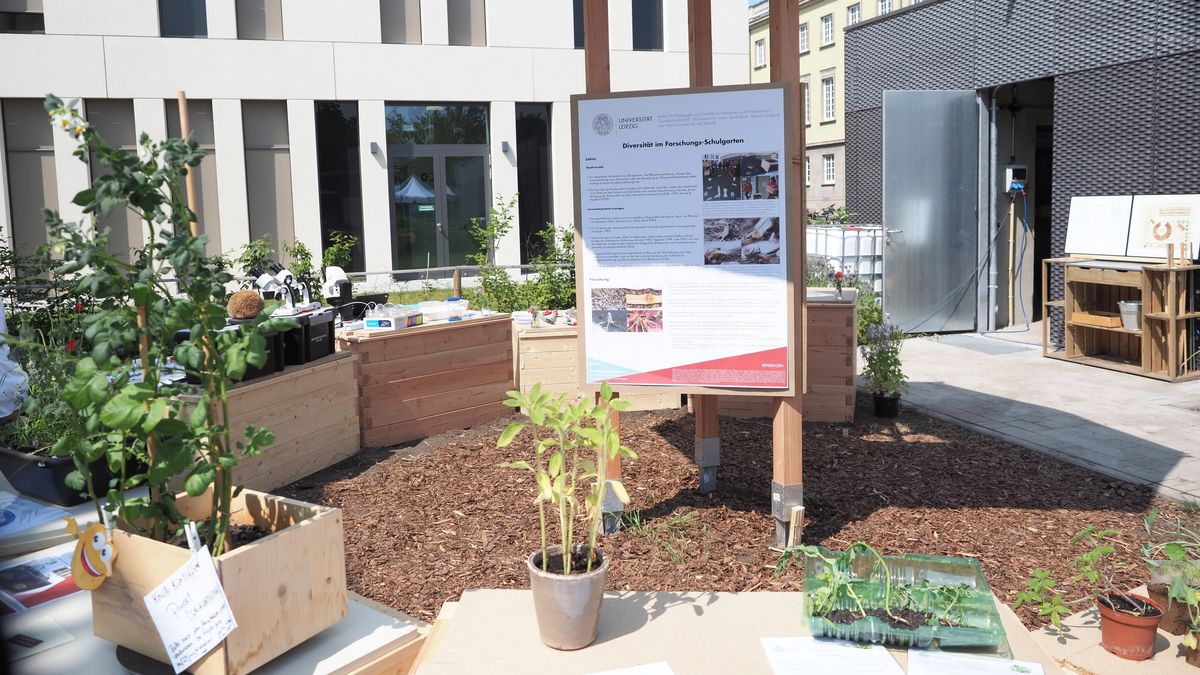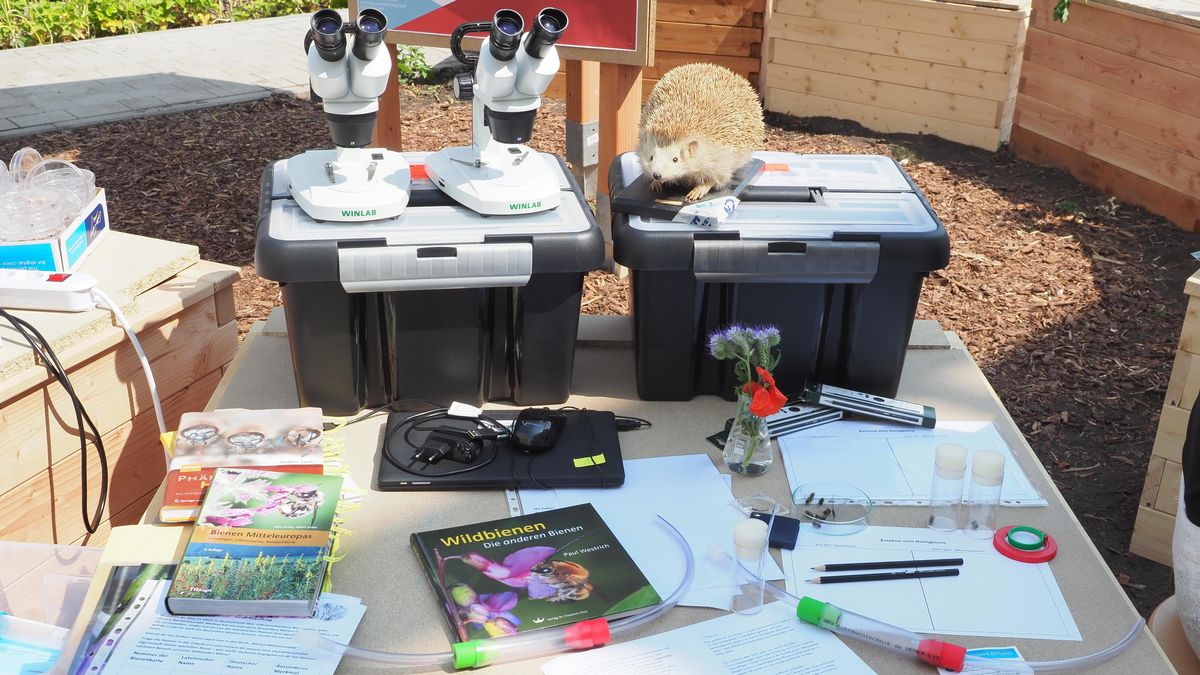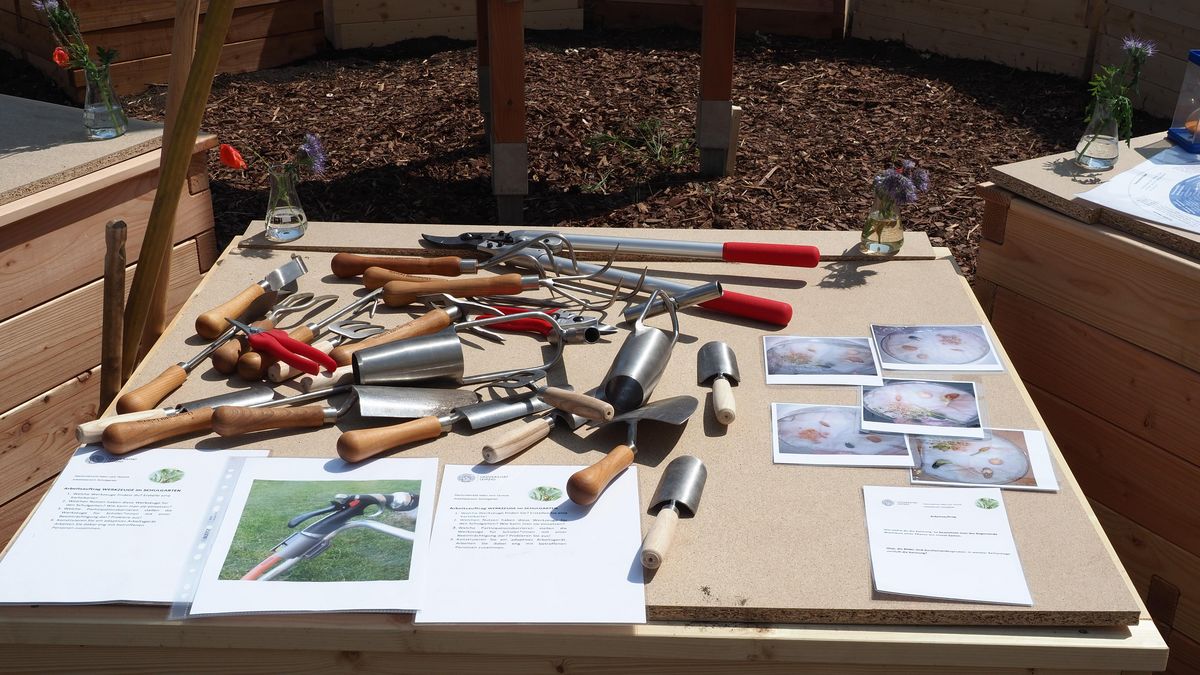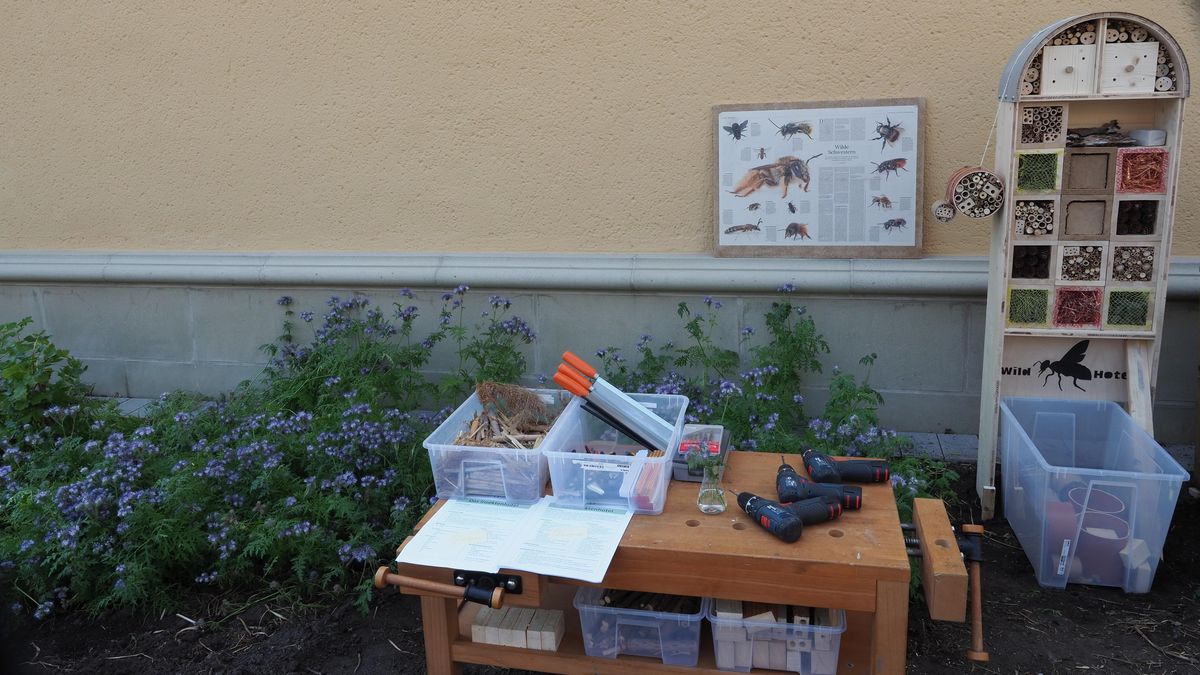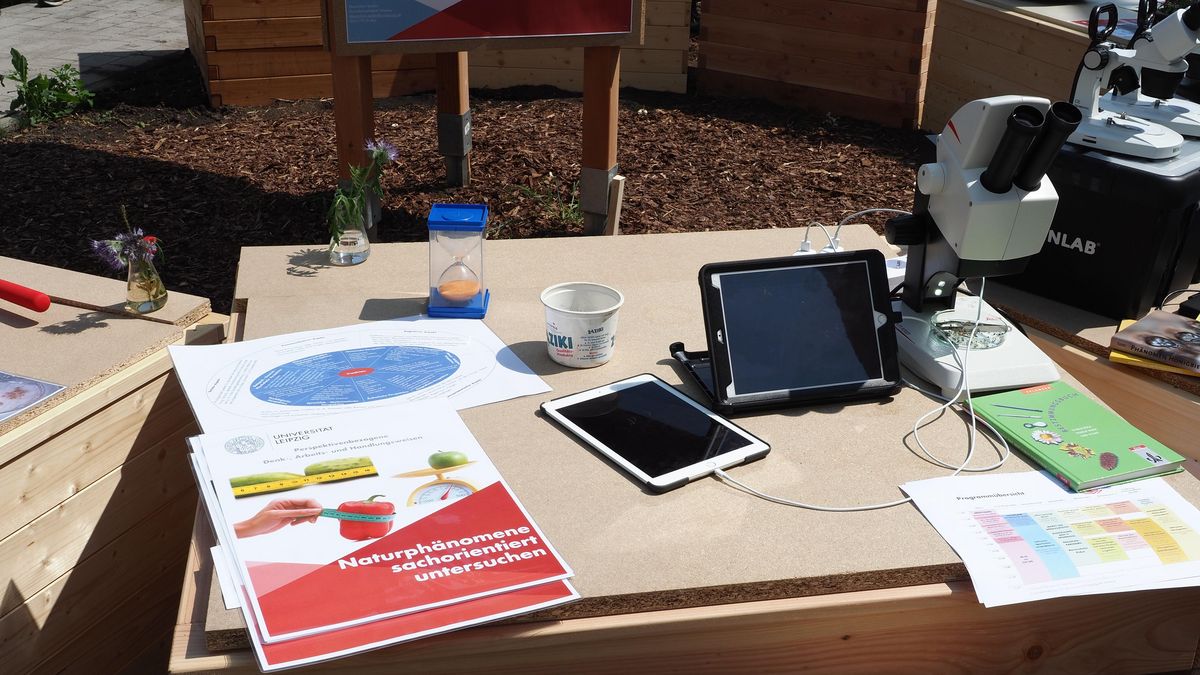School garden
The Faculty of Education at the University of Leipzig offers numerous opportunities for perception and observation with its research school garden on the Jahnallee campus.
News from the school garden
From 14 to 17 October 2021, the International Congress for Children's Philosophy took place at the Karl Franzens University in Graz (Austria) on the topic of "Expectations of Democracies - The Age of Digitalisation and Ecology". In addition to diverse topics on the human-nature relationship, justice and responsibility as well as current perspectives on democracy, education and digitalisation, the school garden was also able to enrich the horizons of discourse. In her contribution "The school garden as a place of democracy - philosophising with children about climate justice and responsibility with regard to the human-environment relationship in the school garden", Alexandria Krug presented a variety of perspectives and transformational moments of the extracurricular place of learning. Further information can be found under the following links:
In the past summer semester, teaching at the university was conducted digitally throughout, and so unfortunately our teaching and research school garden could not be integrated into the teaching as we had hoped. So we had to get a little creative in our teaching and improvise.
Does teaching school gardens in a digital semester make any sense at all? After all, the appeal of the school garden as a place of learning is that it goes outside, that it is practical, that it is about exploring and experiencing and with all the senses, that it is about planning and achieving something together with others, and literally reaping the fruits of one's labour. This was also often the motivation of the students to participate in our school garden seminar.
So how did we test and implement these learning potentials of the school garden despite the digital semester?
Wagenschein and the school garden3 - genetic, Socratic and exemplary on the way in the school garden
As part of the Wagenschein Conference 2021, which will be hosted and organised in digital format by the FHNW (Campus Muttenz, Switzerland), the three enthusiastic school garden colleagues: inside Ruedi Küng (lecturer subject didactics and subject science biology secondary level I at the FHNW), Dieter Franz Obermaier (research associate at the Humboldt University in Berlin) and Alexandria Krug (research associate at the GSD Sachunterricht at the University of Leipzig) in a synchronous video session in their gardens in Basel, in the "Zaubergarten 2. 0" of the UniGardenig project at the Humboldt University in Berlin and in the teaching and research school garden of the Faculty of Education at the University of Leipzig. In the joint dialogue, a first approach to the educational potential of the school garden will be made from the perspective of genetic, Socratic and exemplary didactics according to M. Wagenschein. On 17 April 2021, the three responsible persons will offer a joint panel on this topic at the digital Wagenschein Conference 2021 and further develop the outlined discourses in joint discussion with the participants.
Wegebau im Schulgarten
To meet the needs of wheelchair users, a paved path was laid out to make the accessible raised beds accessible. The research school garden is intended to provide inclusive learning opportunities where all participants gain insights and knowledge about lawns and meadows, fruits and non-fruits or even herbs and their ingredients. Therefore, our goal is to further develop existing school garden concepts into an inclusive school garden with exhaustion of the educational potential for the joint learning of all children as well as the inclusion of digitality.
This requires accessibility on the one hand for paths, but also with regard to participation barriers such as tools. The aim of the Department of Handicrafts is to develop participation opportunities in which users (impaired pupils) and makers (students) come together and jointly develop possible solutions for the school garden. Within this developer cooperation, adaptive tools are to be developed and researched in order to overcome participation barriers in the school garden and thus enable school garden lessons for all students.
Communication, learning from and with each other, plays a particularly important role in the research school garden. There are many opportunities for conversation - and philosophising with children is also given a place among flowers and berries.

